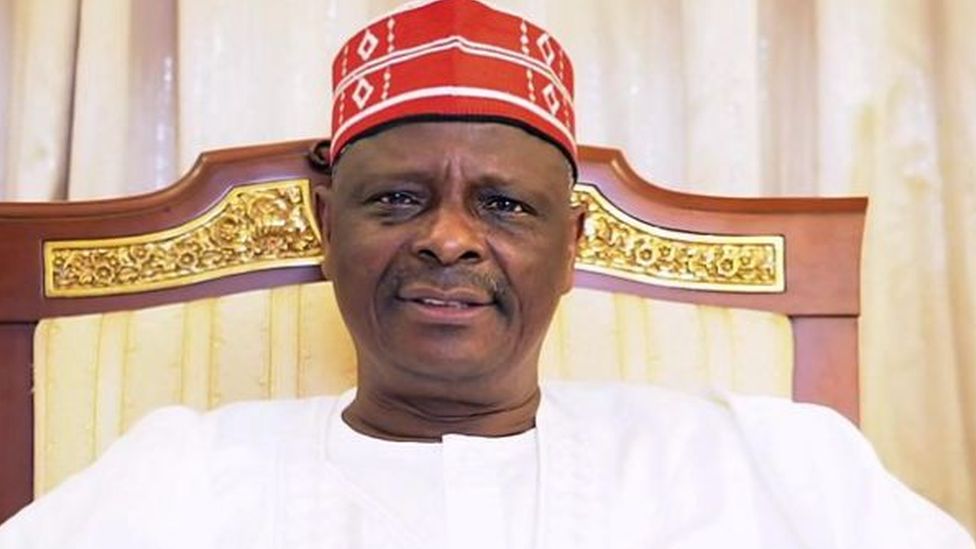The political landscape in Nigeria is a dynamic and ever-shifting terrain, with alliances forged and broken, and individual ambitions often clashing with party loyalty. The recent exchange between Umar Damagum, the Acting National Chairman of the Peoples Democratic Party (PDP), and Senator Rabiu Kwankwaso, the 2023 presidential candidate of the New Nigeria Peoples Party (NNPP), provides a glimpse into this complex interplay of personalities and political maneuvering. Damagum’s assertions of the PDP’s enduring strength and influence, coupled with his acknowledgment of Kwankwaso’s political roots within the PDP, underscore the party’s historical significance and its continued relevance in Nigerian politics. Conversely, Kwankwaso’s criticisms of the PDP and his subsequent departure from the party highlight the internal struggles and shifting loyalties that characterize the nation’s political scene.
Damagum’s core argument revolves around the PDP’s resilience and enduring presence in Nigerian politics. He emphasizes the party’s historical role in shaping Kwankwaso’s political career, portraying the PDP as the nurturing ground that fostered his rise to prominence. This narrative seeks to establish the PDP as the natural political home for Kwankwaso, implying that his departure was a deviation from his true political trajectory. Damagum further bolsters this claim by highlighting the PDP’s consistent electoral success, even when out of power, contrasting it with the NNPP’s limited electoral victories. This comparison serves to reinforce the idea that the PDP remains a formidable force in Nigerian politics, while the NNPP, despite Kwankwaso’s leadership, lacks the established infrastructure and widespread support necessary to achieve significant electoral gains.
Furthermore, Damagum contends that the PDP’s extensive network and deep roots across Nigeria make it an indispensable player in any successful political alliance. He argues that even a coalition of multiple parties, excluding the PDP, would struggle to achieve electoral victory. This assertion underscores the PDP’s perceived strength and its strategic importance in the Nigerian political landscape. By portraying the PDP as a crucial component of any winning coalition, Damagum implicitly invites Kwankwaso and other political figures to reconsider their alliances and acknowledge the PDP’s continued relevance. This strategy aims to position the PDP as the central force in Nigerian politics, capable of uniting disparate factions and leading the charge against the ruling All Progressives Congress (APC).
Kwankwaso’s perspective, however, offers a contrasting narrative. His criticisms of the PDP and his decision to leave the party stem from his perceived mistreatment and humiliation within the party ranks. This experience led him to seek a new political platform, believing that his ambitions and political vision could not be realized within the PDP’s existing framework. His formation of the NNPP represents a rejection of the PDP’s perceived shortcomings and an attempt to build a new political force capable of challenging the established order. This divergence in perspectives highlights the inherent tensions and power struggles within political parties, where individual ambitions often clash with party loyalty and established hierarchies.
The exchange between Damagum and Kwankwaso also reveals the underlying dynamics of Nigerian politics, where personal relationships and historical ties often play a significant role. Damagum’s appeal to Kwankwaso to return to the PDP, emphasizing their shared past and the party’s role in his political development, reflects an attempt to leverage these personal connections to bridge the political divide. This tactic underscores the importance of personal relationships in navigating the complex political landscape of Nigeria, where alliances are often forged and broken based on personal loyalties and historical connections.
Looking beyond the immediate exchange, the broader implications of this political maneuvering suggest a fluid and unpredictable future for Nigerian politics. The shifting alliances, the formation of new parties, and the resurgence of old rivalries create a dynamic environment where political fortunes can change rapidly. The PDP’s efforts to reassert its dominance and Kwankwaso’s ambition to establish a new political force contribute to this ongoing evolution, shaping the political landscape and influencing the trajectory of Nigeria’s democratic journey. The interplay of these competing forces will undoubtedly shape the future of Nigerian politics, determining the balance of power and the direction of the nation’s political discourse. Only time will tell whether these competing forces will lead to further fragmentation or a realignment of political power, ultimately shaping the future of Nigeria’s democracy. The ongoing dialogue between these key players and the shifting allegiances within the political arena will continue to shape the political landscape in the years to come.














